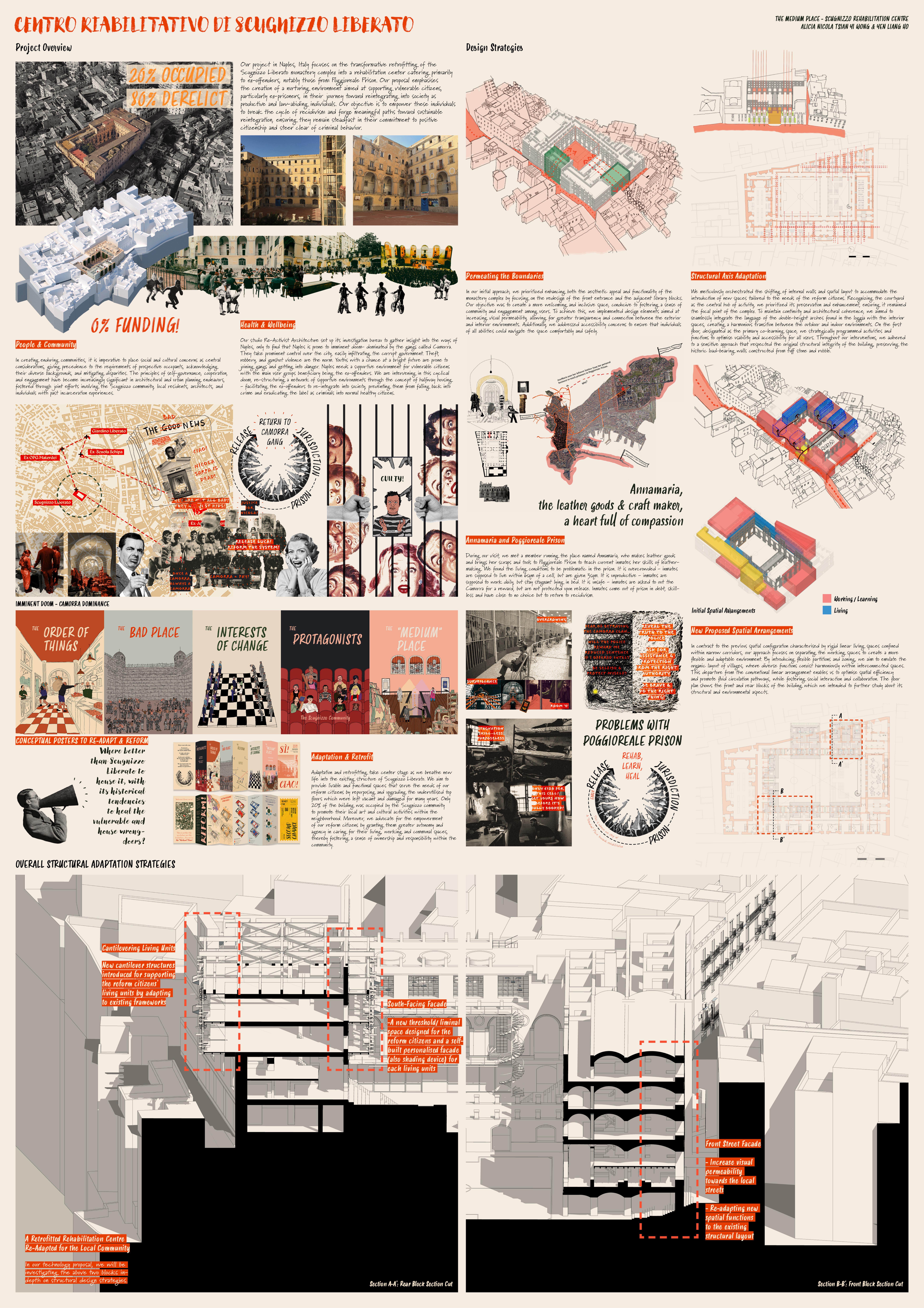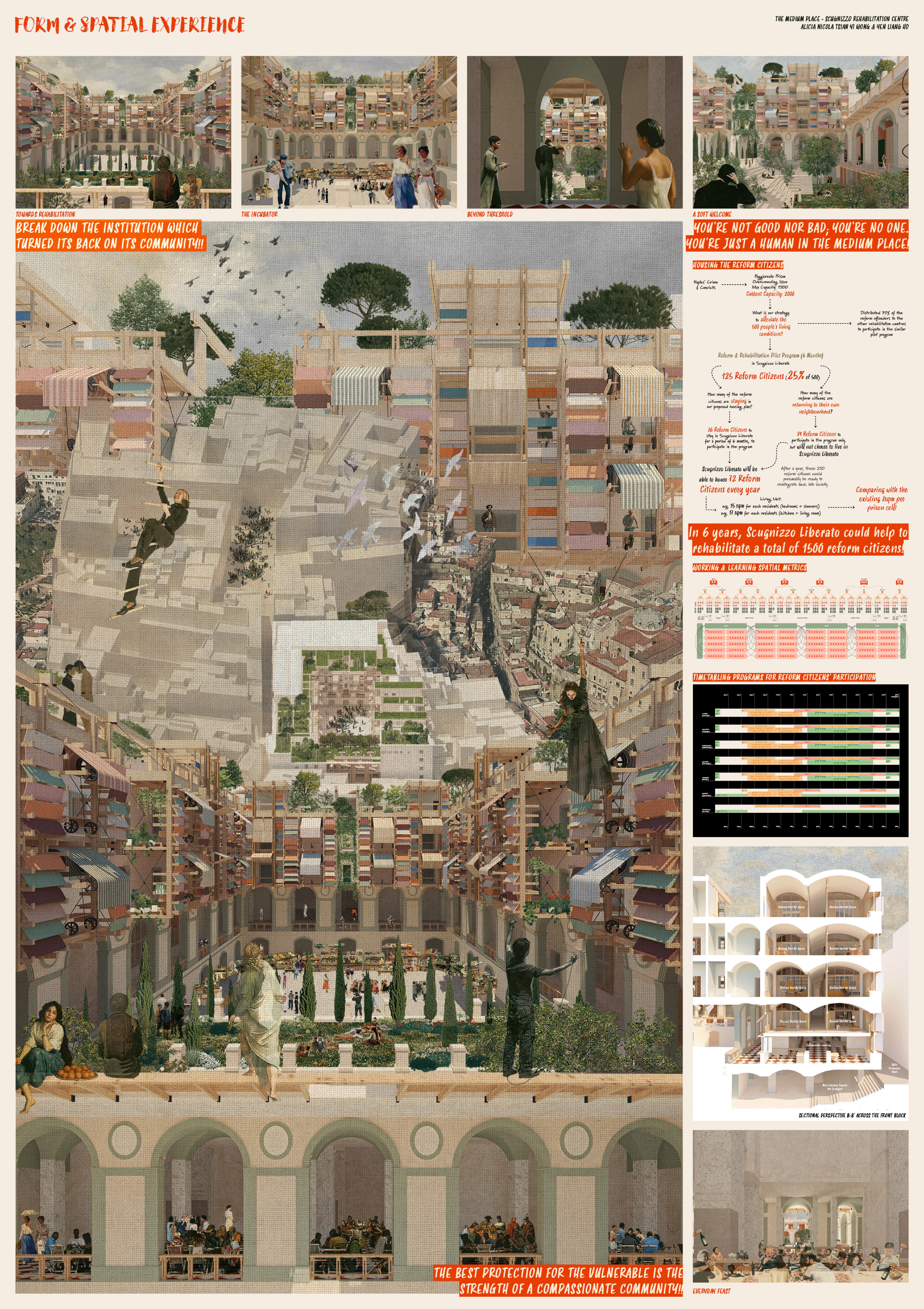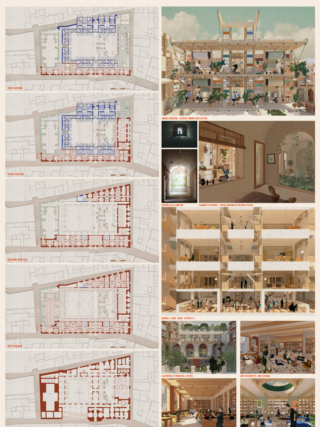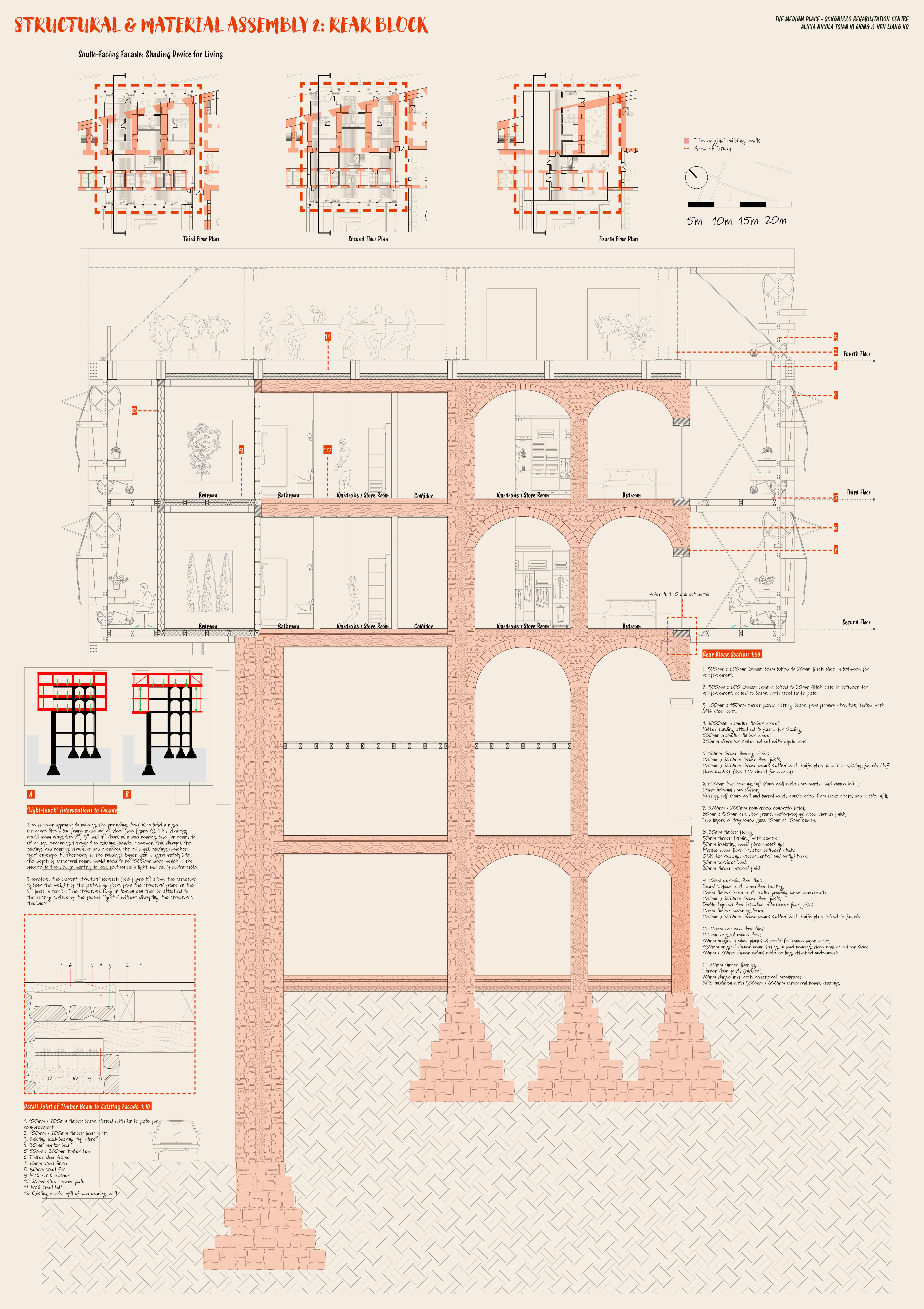Docklands Heronry by Yuen Wah Williams
Now in its second iteration, the Architecture Today Awards Student Prize is for projects that tackle the retrofit or reuse of an existing building and/or explicitly address issues relating to long-term performance, adaptability, demountability and reuse – being in line with the overarching theme of the AT Awards that represents a cultural shift away from celebrating newness and towards a focus on longevity.
Sponsored by VMZINC, the Student Prize has continued to attract a broad range of projects that address these issues from various standpoints. Three projects from students across three different universities have been chosen as finalists by the AT Awards Committee, all of which you see below.
Each project team will now present to our expert jury at a day of live crits on 18 September 2024 at The Building Society in London, presenting alongside other finalist (built) projects in the other 11 categories.
The winners of the Architecture Today Awards will be announced at a party at Battersea Power Station on 21 November 2024.
The Medium Place – Scugnizzo Rehabilitation Centre
Alicia Nicola Tsian Yi Wong and Yen Liang Ho
Sheffield School of Architecture, University of Sheffield
The Medium Place is a rehabilitation centre for vulnerable citizens in Naples, supporting ex-offenders to prevent their return to crime by fostering a healthy community. Re-Activist Architecture’s investigation revealed that Naples is dominated by the Camorra gangs, with theft, robbery, and gunshot violence as common occurrences, often drawing youths into danger.
To address this, the project aims to restructure a supportive network through halfway housing, facilitating the reintegration of ex-offenders into society and transforming their identity from criminals to healthy citizens. The initiative focuses on creating spaces for living, learning, working, and healing. Utilising an existing urban common, it extends beyond the original facade into liminal space, symbolically breaking down institutional barriers. The architecture of the Medium Place emphasises pluralism, complexity, adhoc-ism, chaos, and ornament, enabling individuals to make their own choices within the continuous flow of life.
Reformation
Nicola Maclean
University of Bath
Throughout France, incarceration rates continue to rise, with prison overcapacity becoming the norm. The primary cause is the growth of the short to medium sentence population. Despite new prison places, overcapacity persists due to high recidivism rates, with 80% of short-term inmates reoffending within five years.
The remand prison of Nice exemplifies this issue, situated in a residential neighbourhood, and creating a clear division between the city and soon-to-be-released inmates. Reformation emphasises the responsibility of remand prisons to reintegrate inmates into society by leveraging their relationship with the city. Reimagining the thresholds between city and prison, Reformation proposes creating a new public square to define the public interface. Security lines are contained within the building, allowing the ‘outer’ edge to facilitate interaction between inmates and the public. This new framework for short incarceration in France focuses on re-integration facilities based on local industries, promoting reconnection with the city before release.
Docklands Heronry
Yuen Wah Williams
The Bartlett School of Architecture, UCL
In 2023, the Financial Times revealed that office vacancies in the US and London were at 20-year highs, directly affecting Canary Wharf, a financial development in London’s Docklands. In the 1980s, the London Docklands Development Corporation replaced redundant warehouses and dock infrastructure with late 20th century North American office blocks. These office blocks now face obsolescence, risking a second dereliction of the Docklands. Office tenants are not renewing their 25-year leases, leaving Canary Wharf with ‘stranded assets’ that need creative retrofitting for long-term success.
Docklands Heronry explores several regeneration strategies by combining design work with case studies, interviews with Canary Wharf stakeholders, and research into current real estate trends. The project addresses the urgent issue of repurposing single-use, rigid structures abandoned by companies moving away from traditional offices. Strategies include community-led management, mixed-use development, alternative education, re-use, social housing, food growing, on-site renewables, urban greening, and tourism.

































